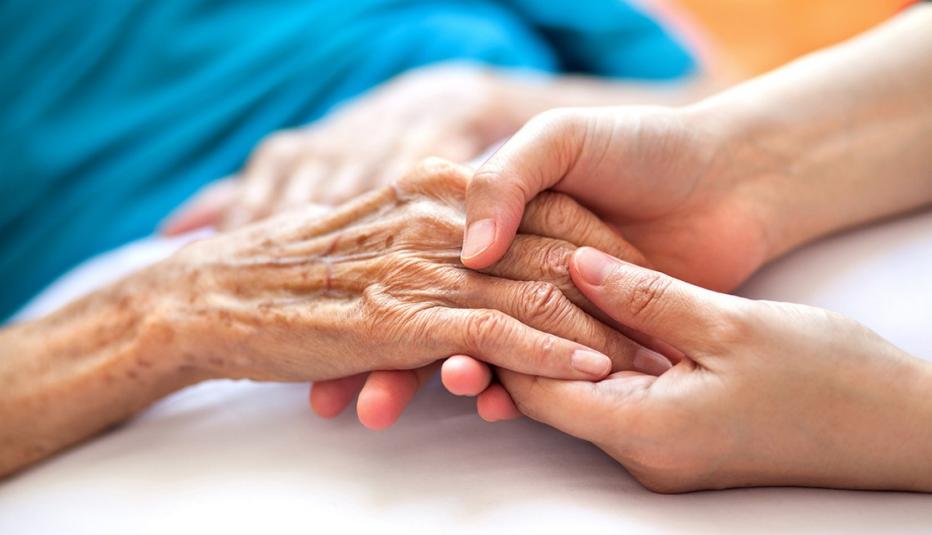
Promoting Dignity, Compassion & Respect in End-of-Life Care
The end of life is one of the most significant stages a person will experience—a time that deserves to be met with dignity, compassion, and respect for each individual’s inherent worth. At First Rights Global, we believe that a society’s treatment of its most vulnerable in their final moments reflects its deepest values. We are dedicated to advocating for end-of-life care policies that prioritize comprehensive care, uphold patient autonomy, and guard against practices that undermine the sanctity of life, such as euthanasia and assisted suicide. Our Dying Well framework is rooted in the belief that everyone has the right to die with dignity, supported by compassionate care, ethical guidance, and the respect of their community.
In the United States, the fragmented healthcare system often places a significant burden on patients and families during the end of life, resulting in high costs and limited options for compassionate care. As the demand for quality palliative care increases—especially as over one-third of adults aged 65 and older are expected to require end-of-life care—there is a pressing need to address these gaps. Around the world, many nations face similar challenges, with limited access to palliative care and disparities in the quality of care provided. However, models of compassionate, life-affirming end-of-life care do exist. The United Kingdom’s National Health Service (NHS), for example, provides comprehensive palliative care services, recognizing that every person deserves comfort, support, and respect in their final days.
First Rights Global’s Dying Well framework emphasizes patient-centered approaches that address the emotional, physical, and spiritual needs of those nearing the end of life. Our commitment includes advocating for the expansion of palliative care services, supporting families facing end-of-life challenges, and establishing ethical standards that honor life’s value until its natural end. By working in partnership with healthcare providers, policymakers, and communities, we seek to create a compassionate system where people can approach the end of life surrounded by care, respect, and dignity—without pressure to choose premature death as an escape from suffering.
Palliative care relieves suffering for patients facing serious illnesses, improving their quality of life. First Rights Global advocates for policies that expand access to palliative care services, including pain management and emotional support, inspired by Canada’s national palliative care program. Ensuring comprehensive care enables individuals to experience dignity and comfort without resorting to life-ending measures.
Assisted suicide and euthanasia undermine the sanctity of life and put vulnerable individuals at risk. First Rights Global opposes these practices, advocating instead for life-affirming end-of-life care, as seen in Poland, where euthanasia is prohibited, and palliative care is prioritized. Protecting life in its final stages supports a commitment to human dignity.
Patient autonomy is essential in end-of-life decisions, allowing individuals to make informed choices about their care. First Rights Global supports advance care planning, such as living wills and healthcare proxies, ensuring patients’ wishes are honored without pressure for life-ending interventions, as modeled by Australia’s advance directives.
Family caregivers bear significant burdens in end-of-life care. First Rights Global advocates for respite care, counseling, and financial aid for caregivers, inspired by Japan’s Long-Term Care Insurance system, which supports families. Supporting caregivers allows them to provide quality care with dignity and without undue hardship.
Ethical pain management is vital for end-of-life care, providing relief while respecting the patient’s dignity. First Rights Global promotes policies that support balanced pain management and training for healthcare providers, following Germany’s compassionate practices, which emphasize comfort without compromising awareness.
End-of-life situations bring emotional challenges like depression and grief. First Rights Global supports mental health resources, including counseling and bereavement services, as in the U.K.’s integrated mental health and palliative care approach. Mental health support fosters resilience for patients and families during this difficult time.
Hospice care offers a compassionate setting for individuals in their final months. First Rights Global advocates for expanded hospice services and funding, inspired by the U.S. Medicare Hospice Benefit, to ensure access to affordable, dignified care. Hospice provides end-of-life comfort that emphasizes family involvement and quality care.
Medical futility policies may allow hospitals to withhold treatments deemed “futile,” against patient or family wishes. First Rights Global opposes these policies, advocating for safeguards inspired by Texas’ reforms, which prioritize patient-centered care and family input. Ensuring fair treatment respects the rights and dignity of patients.
End-of-life care should honor patients’ spiritual and cultural values. First Rights Global supports policies that encourage cultural sensitivity in healthcare, as seen in Brazil’s inclusion of spiritual care. Recognizing individual beliefs allows people to approach death with peace and respect.
End-of-life care varies worldwide, with disparities impacting many. First Rights Global collaborates with international organizations to advocate for universal standards, following the WHO’s palliative care guidelines that emphasize dignity and respect. Promoting global standards fosters a culture that honors life, even in its final stages.
